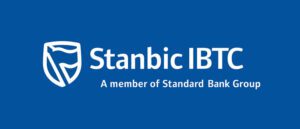
FG to save N8trn annually from fuel subsidy removal, exchange rate unification — Oyedele
The Chairman of the Presidential Fiscal Policy and Tax Reforms Committee, Taiwo Oyedele said the Nigerian government will save N8 trillion annually from the removal of fuel subsidies and the unification of exchange rates.
Speaking at a panel session at the Lagos Chamber of Commerce and Industry, Oyedele emphasised the importance of using the saved funds to alleviate the suffering of the average Nigerian.
Oyedele spoke during a panel session at the Lagos Chamber of Commerce and Industry 2024 Economic Outlook and Budget Analysis.
He, therefore, said it was critical for the government to spend the amount saved from the two policies to ameliorate the suffering of the average Nigerian.
He said, “The Nigerian people made sacrifices as a result of the fuel subsidy removal of the government; that is N4 trillion savings a year. We did naira floatation. It is not perfect. We are also saving another N4 trillion. So we are having about roughly N8tn transferred from the private pockets of the people to the government.
“So, what we are saying to the government is — can we be intentional in spending this N8 trillion to make sure that it impacts the people most positively? Starting with multidimensional poverty. Why is it that more than 133 million people in Nigeria are living in multidimensional poverty? So these are the conversations we are having now. We want to build a platform where we can track how these monies are being spent.”
He added, “In the committee, we tried to look at the most pressing issues we face as a country — inflation, forex instability, lack of investments. One of our recommendations is for the government to suspend some taxes. We call them nuisance taxes because they frustrate people, and we can’t even see the money in the government treasury.”
According to Oyedele, there is an urgent need to create digital opportunities for the teeming youthful population because Nigeria has enough capacity to generate $20 billion annually from the technology sector.
Hinting on some of the recommendations the panel has made to the Federal Government, Oyedele said there was an urgent need to promote exports, including services and intellectual property because, “Before you start exporting goods, you can export services and intangibles.”
He also said that out of the $20 billion diaspora remittances recorded in 2023, more than 90 percent of the funds did not arrive Nigeria in foreign currencies because of existing loopholes which allow middlemen to divert the foreign currencies and pay the recipients of the funds in naira.
He added, “For example, just asking Nigerian companies and businesses to pay taxes in dollars is about $3.5 billion annually, but we sat and thought about it, and wondered how the idea came about.
“How does it help us, that a Nigerian company will go to the market to go and look for the little dollars in Nigeria so it can use it to pay the government of Nigeria? So, just amend the law and you will take that pressure away.”
Also speaking, the Director General of the Budget Office, Ben Akabueze, expressed concern that the country’s penchant for operating budgets with room for deficit in the past three decades had left a debt profile that has raised concern.
Akabueze said, “In our current circumstance, we believe that our biggest fiscal challenge is raising public revenues. That is, the low public revenues against the background of the ever-increasing demand for public goods and services.
“For over two decades, we have been running a deficit in our budget. These deficits have accumulated. They have been funded through debt consistently. The truth is that we haven’t paid back the debt. Now we are at a point where there are concerns about our debt. So we can’t continue with the deficit. The deficit for the 2024 budget is about 3.8 percent of our GDP.”
Speaking further, Akabueze dismissed criticisms surrounding inordinate expenditure on the part of the government.
He noted that Nigeria was not spending enough and that emphasis should be placed on effective spending and not less spending.
He added, “Sometimes people ask — why don’t you cut expenditure? That’s not a feasible option. In the first place, we are not spending enough. If you look at our public expenditure to GDP ratio, it is below what it should be. So, spending less is not an option for us. Spending more efficiently — yes.”
On his part, the Chief Executive Officer of Financial Derivatives, Bismarck Rewane, said key economic challenges have continued to plague the Nigerian economy.
These challenges, according to him, include sub-optimal and non-inclusive growth, increasing income inequality, high poverty and unemployment rate, spiraling inflation, widening fiscal imbalances, and currency pressures.
He also noted that Nigeria’s inflation maintains its upward trend, largely driven by monetary and cost-push factors.
He said external debt service to export ratio shows the external sector is vulnerable.
Rewane also blamed lack of transparency and clear policy direction, lack of effective price discovery measure, capital controls and inefficiency, and high speculation/ arbitrage activities for the protracted forex crisis in the country.



